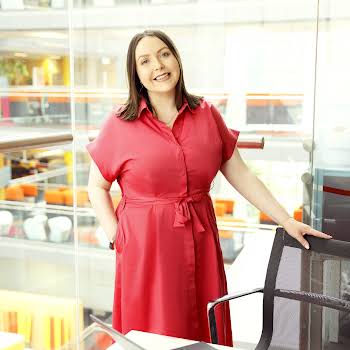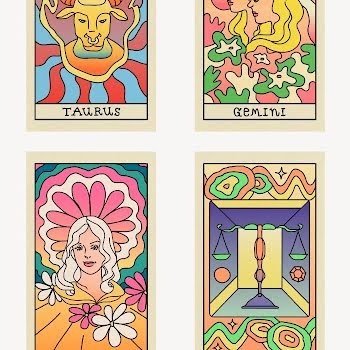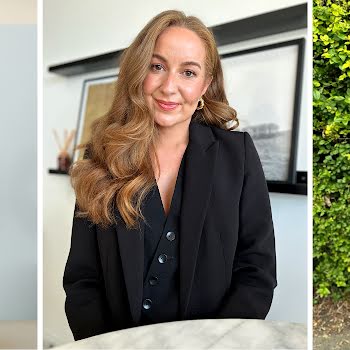
By Niamh Ennis
05th Feb 2024
05th Feb 2024
Uncertainty paralysis refers to the overthinking of a problem and becoming overwhelmed by all the choices in front of you, so instead of deciding what to do and taking the next step, you stop and do nothing.
Now that you’re bouncing towards spring time, I’m guessing that you’ve spent the last few weeks working on your intentions and cementing the plans for the year ahead. You’ve got your list in front of you of everything you want to achieve, and how you want to feel, at the end of the year. So far, so good.
Now it’s simply a case of activating both it and you! Which is exactly when and where you start to feel a little stuck. Soon after, you’re experiencing what very often is described as ‘uncertainty paralysis’. Before we consider possible ways you can overcome this, let’s first explore just what it is and how to recognise its presence in your own life.
What is uncertainty paralysis?
Advertisement
Uncertainty paralysis refers to the overthinking of a problem to the extent that it becomes infinitely more difficult to make or arrive at a decision. It can cause you to have an intense, emotional reaction when faced with making any decision. More often, it happens when you become overwhelmed by all the choices in front of you, or when you just have too much information to wade through before you make your final decision.
Instead of deciding what to do and taking the next step, you stop and do nothing. This feeling renders you unable to come to a satisfactory conclusion and leaves you fully stuck right where you are.
What’s behind it?
It won’t come as a surprise therefore to learn that what’s at the core of all of this is fear; and that even within this there are a multitude of layers you need to be aware of.
Primarily you’re afraid essentially of making the wrong decision. You’re terrified that if you go for one option that another will present itself later as having been the better one. But rather than work your way through the choices in front of you, and sifting through the information provided, you freeze, procrastinate, and do nothing.
You are scared that your actions will be harshly judged by those around you. Deep down, you know their opinions shouldn’t matter but they really do and that prevents you from progressing. You feel more and more detached from your initial motivation, your why.
Advertisement
You catastrophise and imagine the worst-case scenario and believe it to be absolute fact. In doing so, you expect that your fears will be realised and convince ourselves that inaction would be the best protection. It never is!
5 WAYS TO OVERCOME ANALYSIS PARALYSIS
Make simple decisions quicker
Even with smaller decisions, such as choosing what to wear to work in the morning, or where to go to eat at lunchtime; it can be helpful to just push yourself and make a quick decision to keep yourself moving forward. Doing this quick-decision practice will better prepare you, when it comes to smaller decisions; simply because the risks aren’t as high and you begin to build the muscle of making quick decisions that you’re happy with.
Doing this also means that you’re not allowing yourself the time to get too caught up in the detail and are working on rebuilding your confidence to make other, more significant, decisions in the future. It’s about making quick decisions and not allowing yourself to get stuck in your head.
Learn to trust your instincts
Advertisement
What you’re looking for here is to identify that healthy balance of considering your options whilst also learning how to trust your instinct. When it comes to making a decision ask yourself how you will feel if you decide to do something and, equally, how will you feel if you choose not to go with it? Then really pay attention to what comes up in your body. It might sound like a whisper, it might feel like a butterfly sensation in your tummy, it might even be located in your heart space; just sit in silence and see how your body reacts to each situation.
Source an independent mentor
You don’t have to make your decision alone but it’s also crucial that you seek your counsel wisely. Choose someone who’s capable of offering you independent, objective and impartial advice. It’s best not to involve someone who may have a vested interest in your final decision; at least not until you get your own mind in order. If you start by getting clarity on exactly what it is you want, you’ll feel far more equipped to present the final outcome to those around you.
Write it out
While this might not appeal to everyone, daily journaling is highly effective at reducing that feeling of overwhelm. By recording your often-chaotic thoughts daily, it provides you with an opportunity to spot the patterns and observe what’s attempting to make itself known. As well as offering you some valuable information it will also result in there being less surprises along the way, which can only be a good thing.
Get used to uncertainty
Advertisement
This isn’t as cold as it might first appear, but you must accept that uncertainty has a place in your life and need to make room for it. By doing this, you’ll find the anxiety it induces decreases and, in its place, will come a renewed sense of calm. Try to remind yourself that someday this won’t matter, because guess what, some day it won’t! A little bit of distance, room to breathe to regain perspective, always helps.
Finally, it’s worth noting that uncertainty paralysis is inextricably linked to our insatiable need for perfection. American author Dan Miller best describes this when he says “perfectionism is not so much the desire for excellence as it is the fear of failure couched in procrastination.”
So, the next time you feel pressured to make a decision, recognise what’s going on inside you and take whatever steps you need to regulate yourself so that you can make a good decision efficiently and effectively. Once it’s made, it’s made, let it go and move on.
Niamh Ennis is a leading Change & Transformation Coach who through her private practice, workshops, programmes and podcast has helped thousands of women to make significant changes in their lives. She’s an accredited Personal, Leadership & Executive Coach and the Lead Coach in the IMAGE Business Club. Niamh is currently accepting applications for her 1-1 Private Coaching Programme. To receive your FREE copy of her 7 Simple Steps towards Change just click here. Email niamh@niamhennis.com for info and follow Niamh on Instagram @1niamhennis.
Photography by Unsplash.
Advertisement























